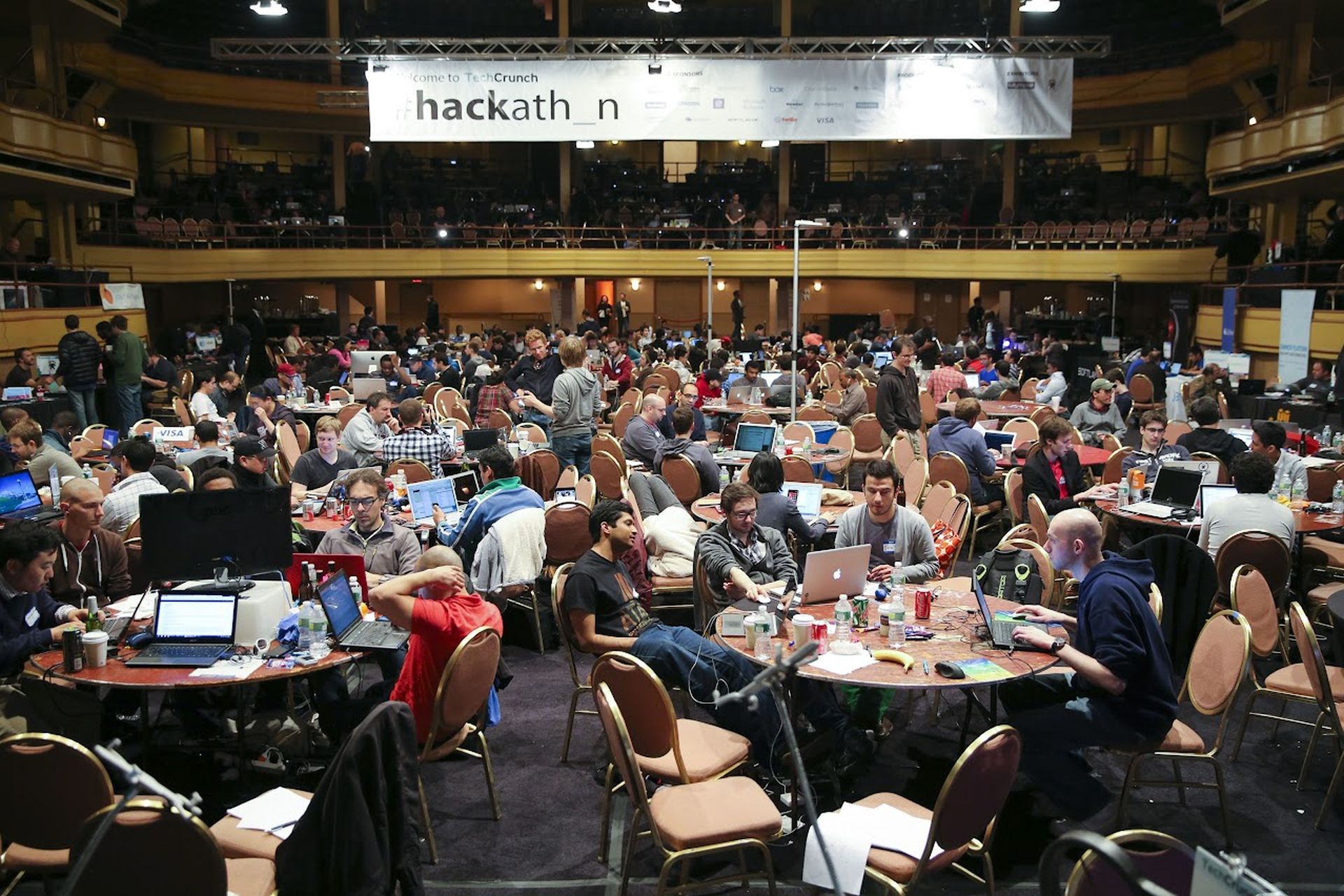Hackathons have emerged as dynamic catalysts in the rapidly evolving world of technology, igniting creativity, collaboration, and innovation across diverse industries. What began as exclusive battlegrounds for IT coders has evolved into inclusive gatherings, attracting various talents from banking, retail, pharmaceuticals, and beyond. No longer confined to the realm of programmers, hackathons now attract economists, designers, journalists, and professionals with expertise that transcends conventional boundaries.
Traditionally, companies leverage hackathons to address product-related challenges, from exploring new applications for existing services to integrating cutting-edge technologies like machine learning, bots, and blockchain. However, these events serve a dual purpose; beyond solving immediate problems, they function as talent hubs, offering a fertile ground for HR professionals to unearth gems amidst a sea of innovative thinkers.
Enter the Hackathon Raptors—a non-profit community of talented developers who have taken the initiative to organize socially impactful hackathons and reached remarkable heights. Their journey unveils hackathons’ pivotal role in attracting new talent, fostering innovation, and building a vibrant community of developers.
In the world of tech innovation, Maksim Muravev stands out as a driving force behind the Hackathon Raptors community. His firsthand experiences highlight these events’ unique environment, challenging participants to think creatively and collaborate under pressure, ultimately honing their skills and fostering diverse, impactful solutions. Beyond mere competition, Maksim emphasizes hackathons’ vital role in networking and community building within the tech industry. He values the connections forged during these events, which often evolve into lasting friendships and productive collaborations, reflecting his belief in their power to foster a vibrant community of developers eager to learn, share, and grow together.

Similarly, Dmitry Brazhenko, an ML engineer at Microsoft Copilot, champions hackathons as pivotal for innovation in machine learning and AI. Drawing from his background as a data analytics tutor and contributions to open-source libraries, Dmitry views hackathons as unique platforms for experimenting with new algorithms and models collaboratively. His work, including developing SharpToken and insightful articles on Habr, demonstrates the practical impact of machine learning innovations from these competitive settings. Dmitry also stresses the importance of hackathons in making technology education more accessible, bridging academic learning and real-world application, democratizing technology education, and fostering a forward-thinking approach to future technologies.
Alim Shogenov, an exceptional software engineer renowned for his groundbreaking work across multiple sectors, including education, finance, and travel technology, offers another perspective on the transformative power of hackathons. His innovative project, “Digital Future of Education”, earned him prestigious accolades for its transformative impact on document management in educational institutions, slashing processing time by 16% while enhancing user accessibility. Alim highlights hackathons’ unique environment, pivotal for rapid innovation in turning concepts into working prototypes. His expertise and interdisciplinary collaboration underscore hackathons’ significant role in fostering personal and professional growth within a supportive community.
Dmitrii Starikov, an incredibly talented web developer with a wealth of experience in creating high-load systems for world-renowned exhibitions, libraries, and archives. He has also made significant contributions to projects of national significance that preserve the world’s cultural and historical heritage. Dmitrii is a firm believer that hackathons provide developers with unique opportunities to push the boundaries of their professionalism and solve real-world problems. Dmitrii is absolutely thrilled about the unique challenge that hackathons present! Participants are given the opportunity to apply their skills in novel ways, which helps to highlight the soft skills gained through participation, such as enhanced communication and effective presentation of ideas. Dmitrii is a big fan of the community aspect of hackathons, where connections with like-minded individuals can lead to potential collaborations and opportunities beyond the event itself.

Oleg Mikhelson, an outstanding tech expert with decades of experience in technology infrastructure, brings a perspective to the discussion. For Oleg, hackathons are instrumental in driving innovation in systems development, testing, and refining infrastructure solutions under pressure akin to real-world challenges. He values the mentorship aspect of hackathons, seeing them as opportunities for tech professionals to exchange knowledge and mentor up-and-coming talent, fostering a supportive environment where learning and mutual support flourish among enthusiasts. Oleg’s insights underscore the multifaceted benefits of hackathons, from driving technological advancements to building a vibrant, collaborative community that transcends individual events.
But how does one organize a hackathon? Here’s a guide to getting started:
- Set your goals: Before diving in, figuring out what you want to achieve is crucial. Whether sparking innovation in a specific industry, tackling a social issue, or simply bringing the developer community closer together, having a clear goal will guide you every step. For the Hackathon Raptors, it’s always been about creating a welcoming space where developers can learn, collaborate, and make a difference.
- Pick a theme that speaks to you: Choosing the right theme can make or break your hackathon. It should be broad enough to inspire creativity but focused sufficient to provide direction. The Hackathon Raptors have organized events around themes like AI for Humanity and Web Accessibility, drawing in a diverse crowd of developers passionate about making a positive impact.
- Build your dream team: Organizing a hackathon is no small feat—it takes a dedicated team with a variety of skills. From event planning and marketing to technical expertise and community engagement, having the right mix of people is essential. The Hackathon Raptors thrive thanks to their diverse organizing team, bringing together different perspectives and talents to ensure their events run smoothly.
- Find support and partnerships: Sponsors and partners can provide the resources needed to make your hackathon a success. This includes everything from funding and technology to mentorship and prizes. The Hackathon Raptors have teamed up with companies and organizations that share their values, ensuring their events are well-supported and aligned with their community’s goals.
- Spread the word: Getting the word out is key to attracting participants. Utilize social media, online forums, and good old-fashioned word of mouth to generate buzz around your event. The Hackathon Raptors excel at drumming up excitement, using engaging content and personal stories from past participants to inspire others to join the fun.
- Create a collaborative atmosphere: Building an environment that fosters collaboration and innovation is essential for a successful hackathon. Offer resources like workshops, mentorship, and networking opportunities to support participants every step of the way. The Hackathon Raptors strongly emphasize inclusivity and support, ensuring everyone feels valued and welcome.
- Celebrate success: At the end of the day, it’s important to celebrate all participants’ hard work and achievements. Hand out prizes, showcase projects, and allow teams to continue working on their ideas. The Hackathon Raptors community is about sustainable development and innovation, encouraging teams to keep pushing forward even after the event.
But it’s not just about organizing—hackathons have birthed remarkable projects. Take the MSQRD app, conceived by just two developers, which aimed to revolutionize modern messaging for mobile devices. Despite requiring originally four team members, they hastily assembled a duo on the eve of the hackathon. MSQRD swiftly gained traction among celebrities flaunting its masks on social media, particularly in Europe and the US.
Intrigued by MSQRD’s technical prowess and user engagement, Facebook struck a deal with the developers, granting them access to its vast user base. With plans for future projects in the entertainment and social sectors, MSQRD now seamlessly integrates its features across platforms like Instagram and WhatsApp.
Hackathons have emerged as transformative forces in the tech world, transcending traditional boundaries to become inclusive platforms for innovation, collaboration, and community building. The stories of Maksim, Dmitry, Alim, Dmitrii, and Oleg exemplify individuals’ diverse perspectives and invaluable contributions to these events. From pushing the boundaries of technology to fostering personal and professional growth, hackathons continue to play a pivotal role in shaping the future of technology and empowering individuals to make a difference. As we look ahead, the Hackathon Raptors and similar communities stand as beacons of inspiration, driving positive change and helping us dream of what’s possible through the power of collaboration and innovation.
Featured image credit: Freepik






